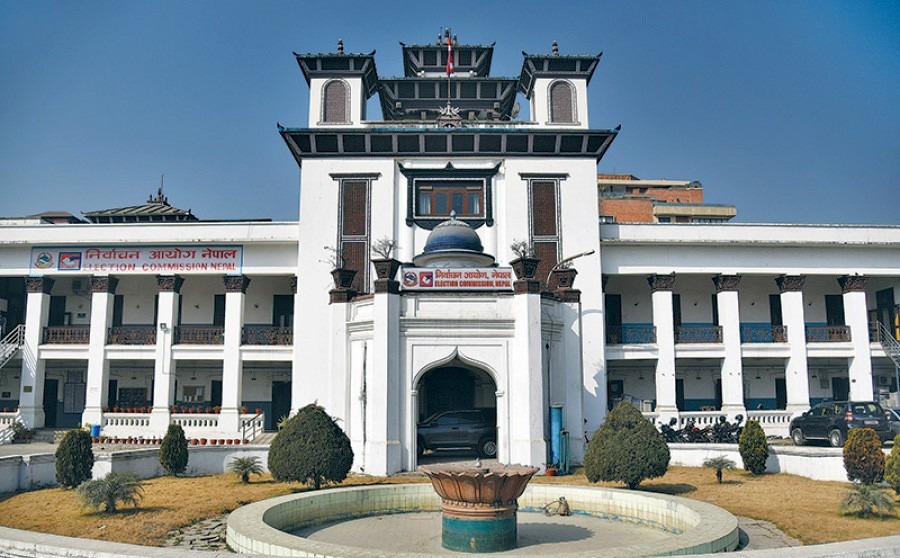Columns
Expectations from the Election Commission Nepal
It is up to the commission to be the responsive, fair, judicious, and autonomous body it is.
Ila Sharma
There has been considerable hue and cry all over mainstream and social media that the Election Commission of Nepal was not being fair in levying hefty fines on those who could not afford them in the recent local elections. On the one hand, the election commission receives a lot of flak for not implementing election expenditure rules on candidates who openly flout the law. There is no doubt that it must regulate and maintain financial discipline. The commission, on the other hand, wants to encourage candidates from excluded clusters to run for office. It fined candidates who failed to submit expenditure reports on time.
Regarding the expectations, as well as the nature and purpose of the commission, there seems to be a lot of confusion in the public mind. To be able to understand the actions or perceived inaction of the commission, we must first understand the nature of this constitutional body—its jurisdiction, duties and functions. What is referred to as the commission’s activism or overreach is, in fact, its duty.
The election commission has traditionally been a very quiet/silent institution, conservative and behaving very much like the tight-lipped judiciary, shy to publicise its work. Nor does it defend itself when attacked. It is best not to get distracted when one has to deliver periodic elections on the ground without a glitch. However, the downside of remaining silent in the face of criticism is that most of us do not understand the commission’s attempts at electoral and party reforms, nor do we understand how it functions.
An election commission is a constitutional body with a whole gamut of functions, from quasi-judicial to purely administrative and managerial. Its primary responsibility is to deliver periodic elections that are free, fair and credible on the ground. Along with some legislative duties, it also serves as a quasi-judicial body. That is why the regulations, directives, procedures, directions and orders related to the election, drafted and issued by the commission, have the effect of law and are enforced as such during the election.
It is interesting to note that not only does the election commission initiate legal framework that follows an act, but it also initiates every preliminary draft bill of electoral laws. This is a good practice in Nepal as none other than the commission has consolidated lessons learnt from their past work. The commission works on its reform agenda through five-year strategic plans and knows best when it comes to what reforms to take up to deliver increasingly better elections on the ground. Every election is rounded up with review meetings, and annual reviews are a part of the learning process.
The draft bill thus prepared by the election commission is then sent to the Ministry of Law through the Ministry of Home Affairs for vetting to check if anything in the bill is in conflict with the constitution and prevalent laws of the land. However, the substance of the content is not to be tampered with. It is a different matter that the journey of the draft bill is lengthy, and the substance itself is sometimes mutilated beyond recognition before it reaches the state affairs parliamentary committee for discussion and then tabled in Parliament.
Depending on the situation, as the election commission deems fit, regulations, procedures, and directives are formulated in line with the spirit of the constitution and are based on the relevant acts passed by Parliament. These instruments are essential because they serve as tools for the commission to implement reforms and make quick decisions. In the exercise of powers granted under the relevant acts, the commission is responsible for formulating rules and regulations.
Additionally, the election commission can take reform measures. One such provision is made in the law, which states that women, Dalits and ultra-poor candidates are to be charged only half of the regular nomination fee. To encourage these groups to run for office, the commission halved the fees in the preliminary draft bill. In the recent past, many candidates who ran for office in the local elections belonged to such groups, but many of them lost. Many were first-timers and independents, which means that they may not have been aware of the requirement to submit election expenditure reports to the commission within the given time frame.
The election commission recently issued directions to the political parties to field one-third of their candidates in the first-past-the-post system. It is a different matter for observers, civil society, and the voters to see and monitor how many parties followed the orders. However, using the same powers, the commission can also waive the fines by setting up criteria for the financial status of the candidates who lost. The commission’s message that it can come down heavily on those who violate the law has been well established. It is now up to the commission to be the responsive, fair, judicious, and autonomous body it is.




 18.12°C Kathmandu
18.12°C Kathmandu















